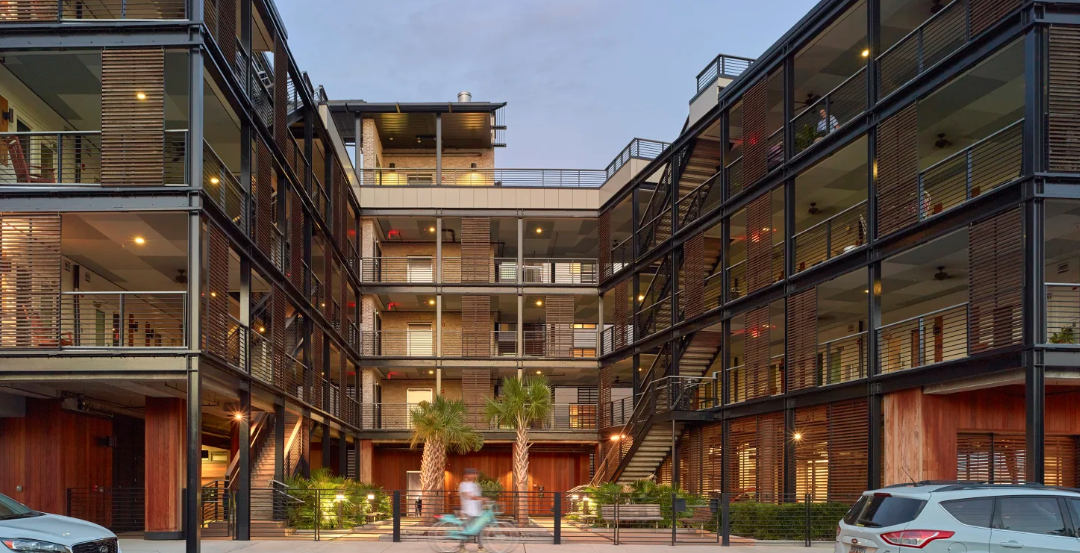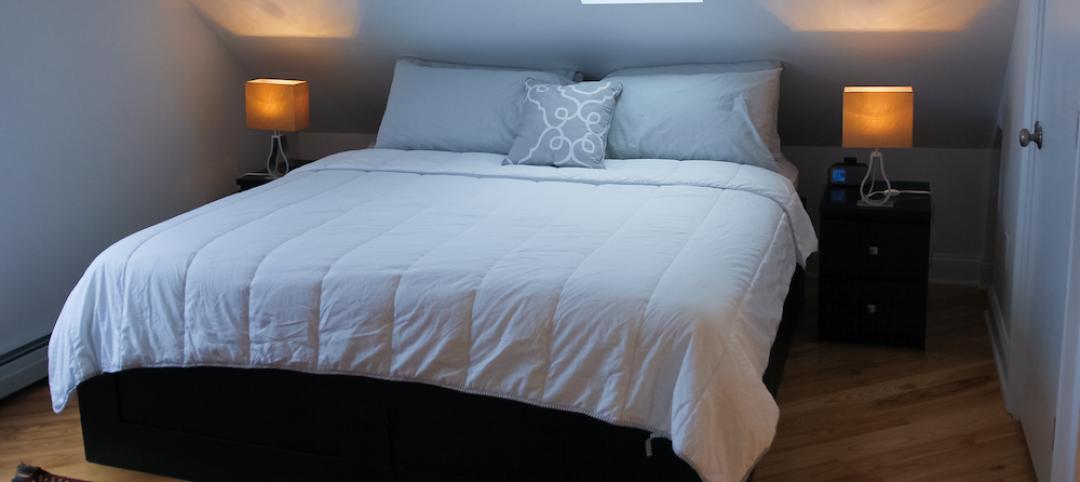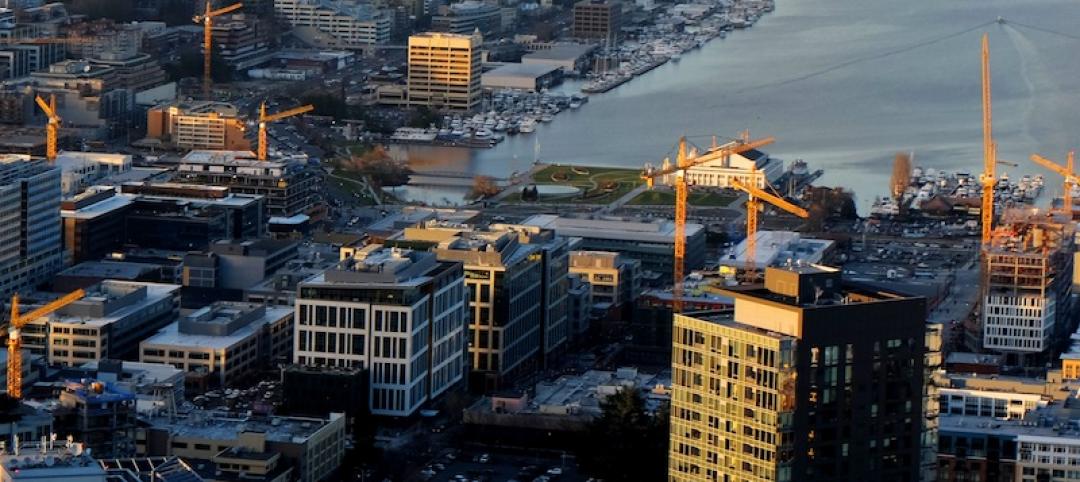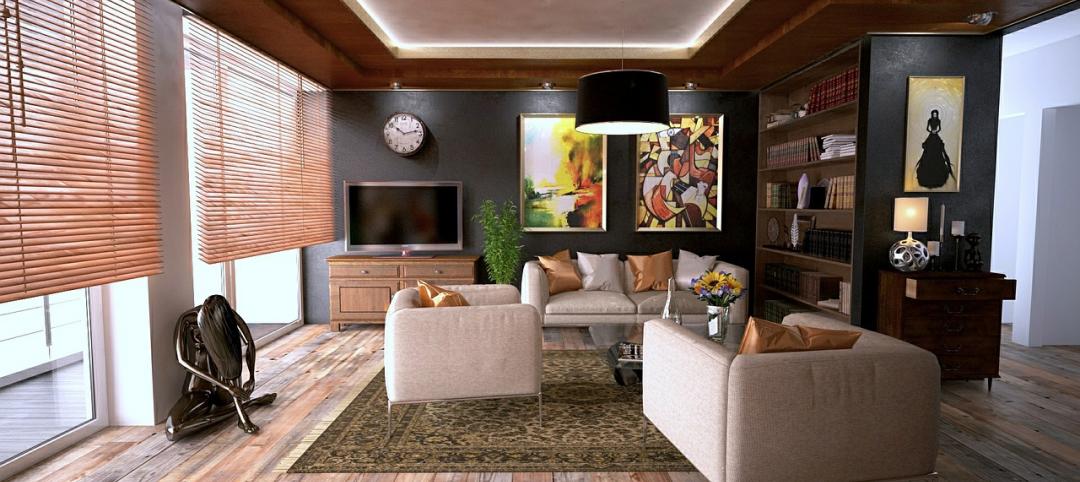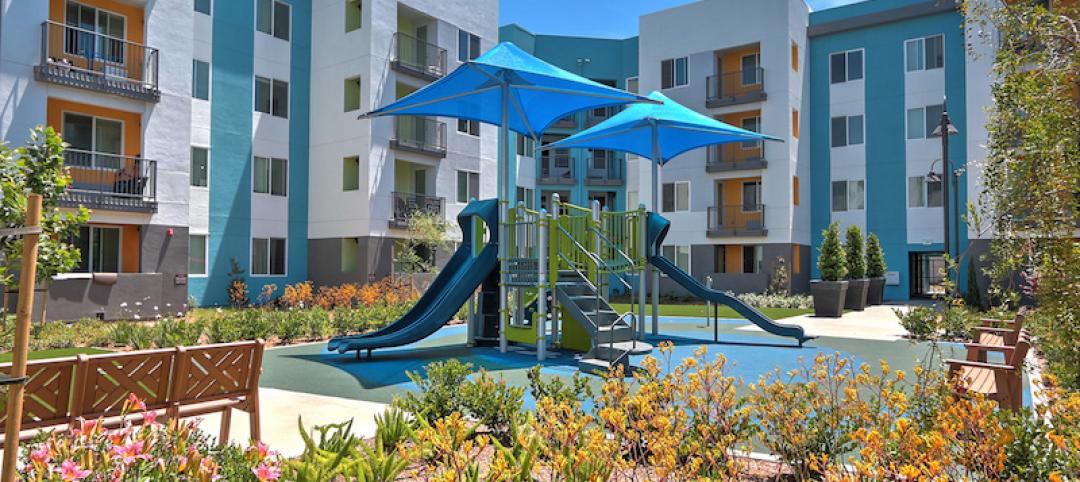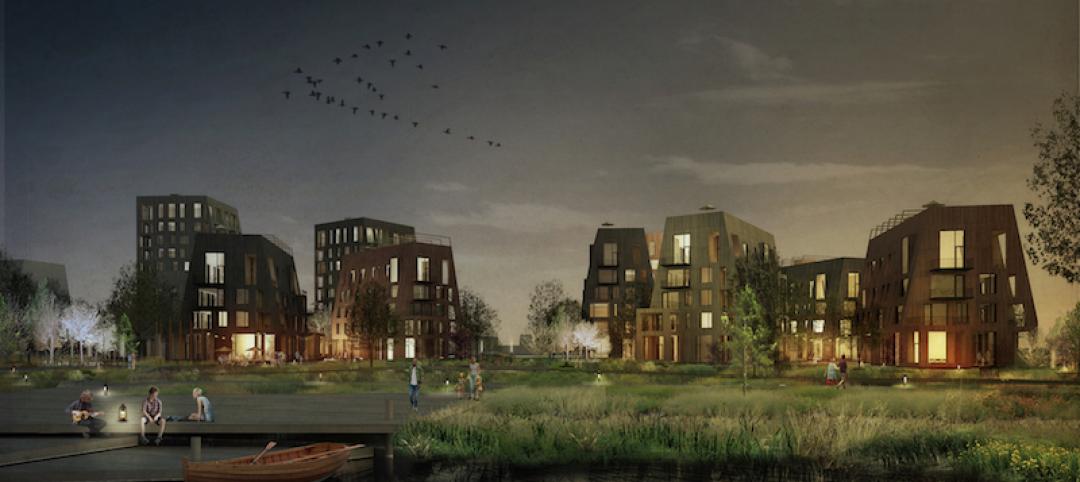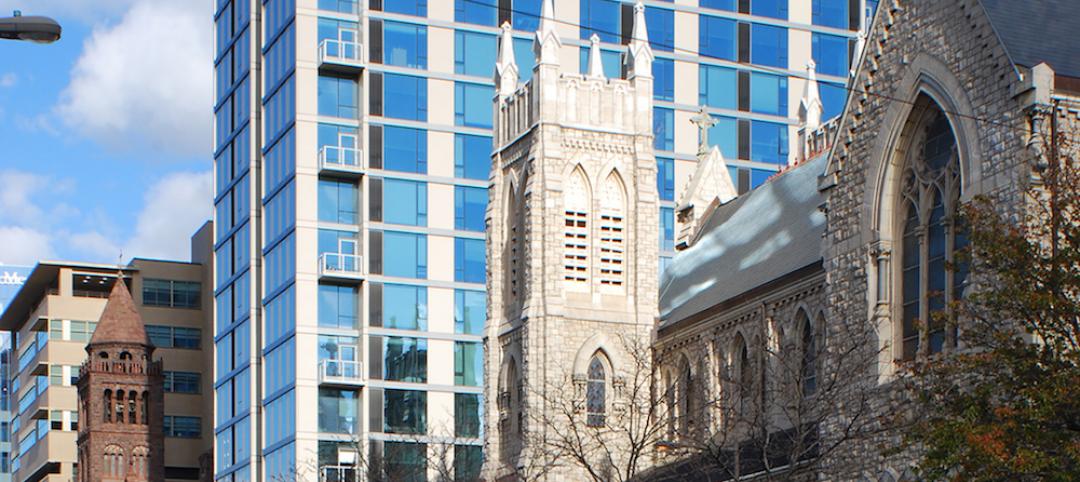The American Institute of Architects’ (AIA) Housing Knowledge Community in conjunction with the Office of the Secretary of the U.S. Department of Housing and Urban Development (HUD) are recognizing four housing designs with the 2019 AIA/HUD Secretary's Awards.
Each year, the AIA and HUD partner to celebrate projects that demonstrate affordable, accessible and well-designed housing, proving that good design is not exclusive. Projects were awarded by the seven-member jury in the following categories:
Excellence in Affordable Housing Design Award
Williams Terrace, Charleston, South Carolina | David Baker Architects
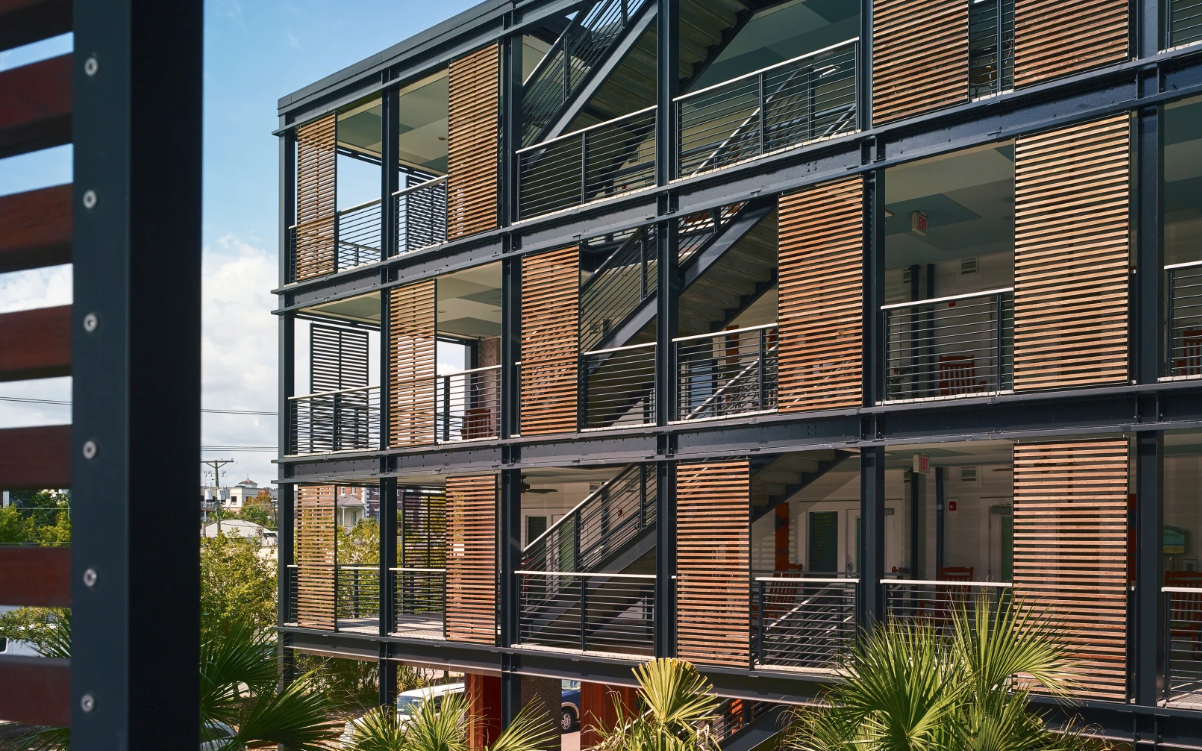 Photo: Luker Photography, courtesy AIA
Photo: Luker Photography, courtesy AIA
The first dedicated housing for Charleston, S.C.’s low-income seniors, Williams Terrace finally replaces housing that was lost to a hurricane in 1989. A collaboration between two firms that combined vernacular knowledge and expertise, the project delivers contemporary new housing that respects and honors the city’s historic fabric.
Working closely with the city’s housing authority, the team’s dynamic design meets the challenges of the site, which is situated in a high-velocity flood zone. The project echoes the iconic Charleston single house, with piazzas that function much like porches. These wide, open-air corridors provide external circulation and surround an airy central courtyard. Lined with ample seating, the corridors encourage interaction and extend the residents’ living space. Louvered shutters allow residents to adjust the amount of shade to their liking while creating an ever-changing façade.
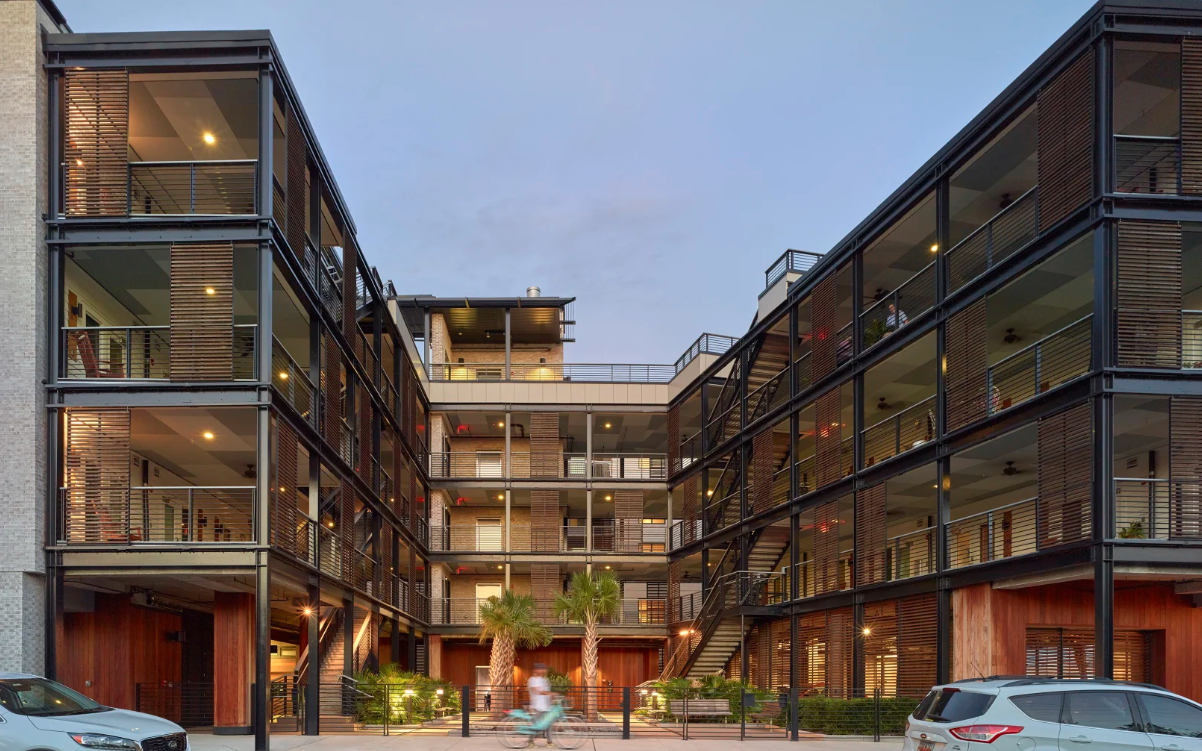 Photo: Luker Photography, courtesy AIA
Photo: Luker Photography, courtesy AIA
On the ground floor, the building’s “screen porch” fronts a new public park that is directly connected by a shaded public sidewalk. While the flexible space does not include any built-in furnishings due to city requirements, it can accommodate a variety of events. To avoid flood damage, a community room is located on the roof and offers views across the park and to the nearby harbor.
Much of Charleston’s public and affordable housing stock located in the suburbs, so this project is an important step in addressing one of the city’s largest challenges: keeping longtime residents downtown.
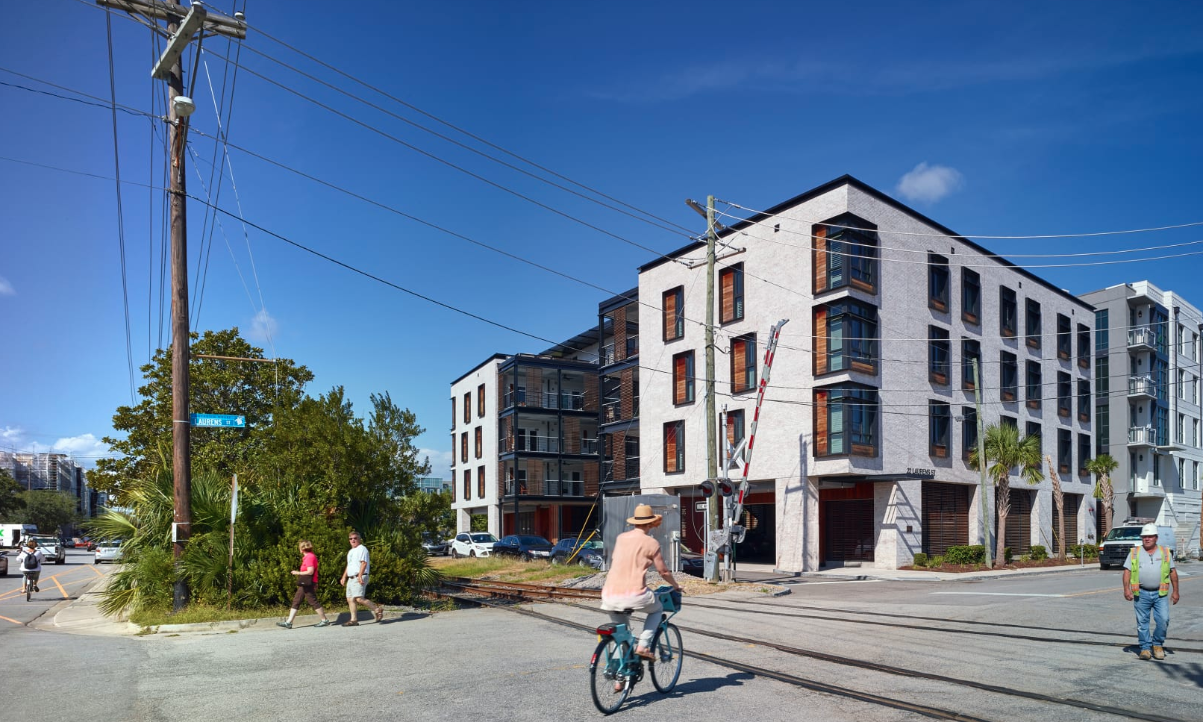 Photo: Luker Photography, courtesy AIA
Photo: Luker Photography, courtesy AIA
Creating Community Connection Award
Anchor Place, Long Beach, California | The Architects Collective
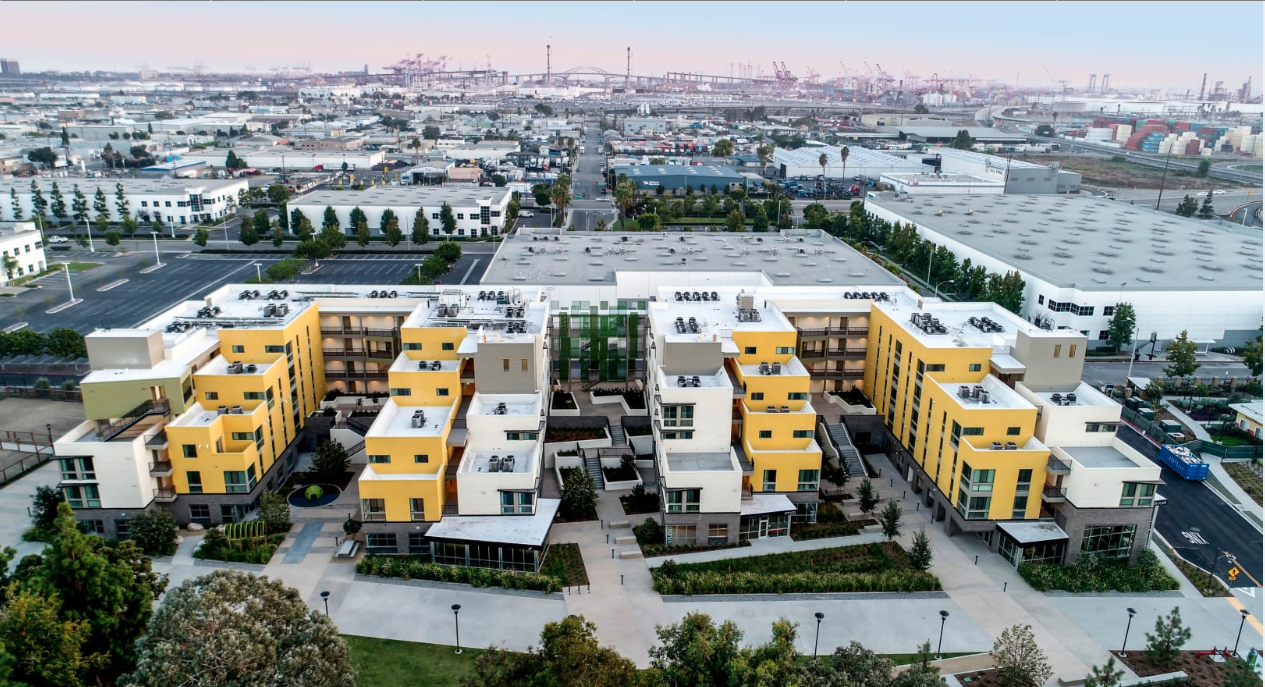 Photo: Panic Studio LA, courtesy AIA
Photo: Panic Studio LA, courtesy AIA
On a former Navy housing site in Long Beach, California, this project aims to break the cycle of homelessness through supportive housing and services for previously homeless veterans and their families. Anchor Place comprises four main components: a new building, renovation of an existing social hall, site-wide landscape, and street-level improvements.
The project reinforces a hierarchy of building and circulation, bolstering the legibility and connectivity of its campus context. With four wings, the design creates three courtyards that directly connect to community-focused amenities on the ground floor. A relocated bus stop connects residents to the city and world beyond, while the landscape helps lead those seeking on-site services directly to them.
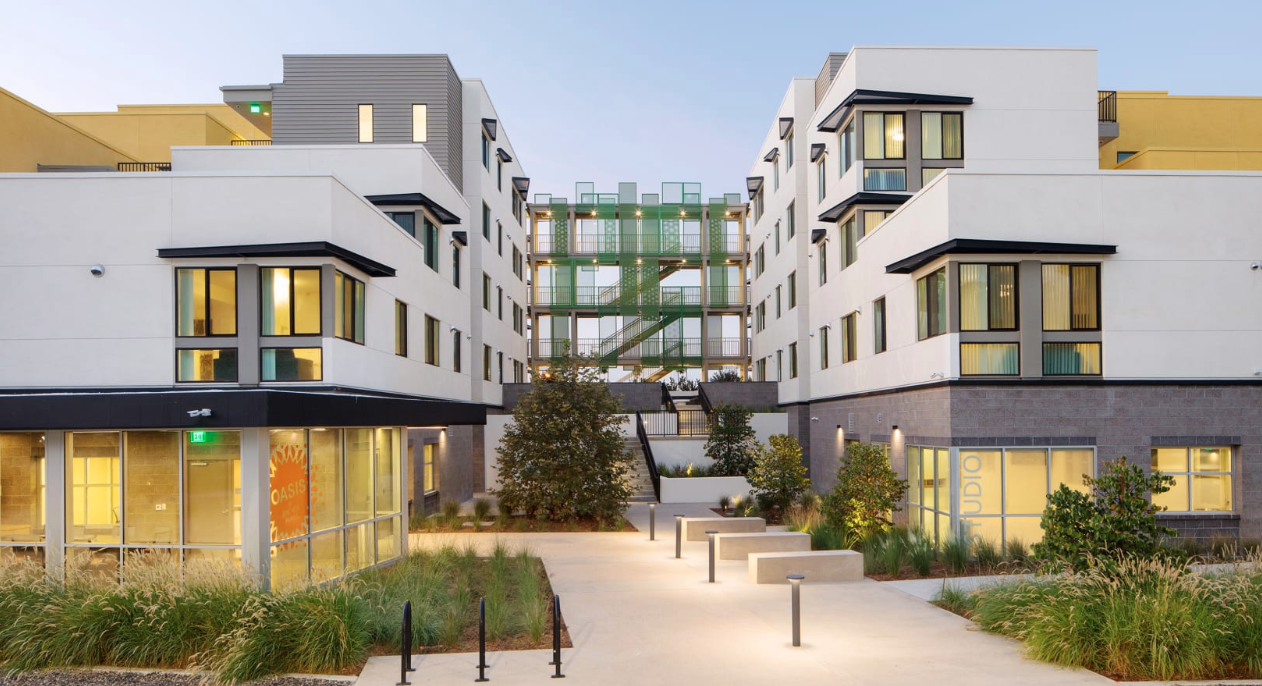 Photo: Panic Studio LA, courtesy AIA
Photo: Panic Studio LA, courtesy AIA
The client’s primary goal was to develop a multiunit housing project that fits synergistically within the existing campus and encourages residents to access provided activities and services. The project offers 120 affordable one-, two-, and three-bedroom units and on-site services that include case management, counseling, and life-skills training, among others. Responding to its context, the design creates a prominent edge on the campus’ southern boundary while extending the east-west pedestrian axis. Three courtyards are all programmed differently and offer space for children to play, social activities, or quiet contemplation.
A social impact report published annually by the community tracks key performance indicators that relate to residents’ physical and mental health, quality of life, and housing stability. In 2017, 69 percent of residents surveyed rated their general health positively, while 77 percent indicated they were happy living in the community.
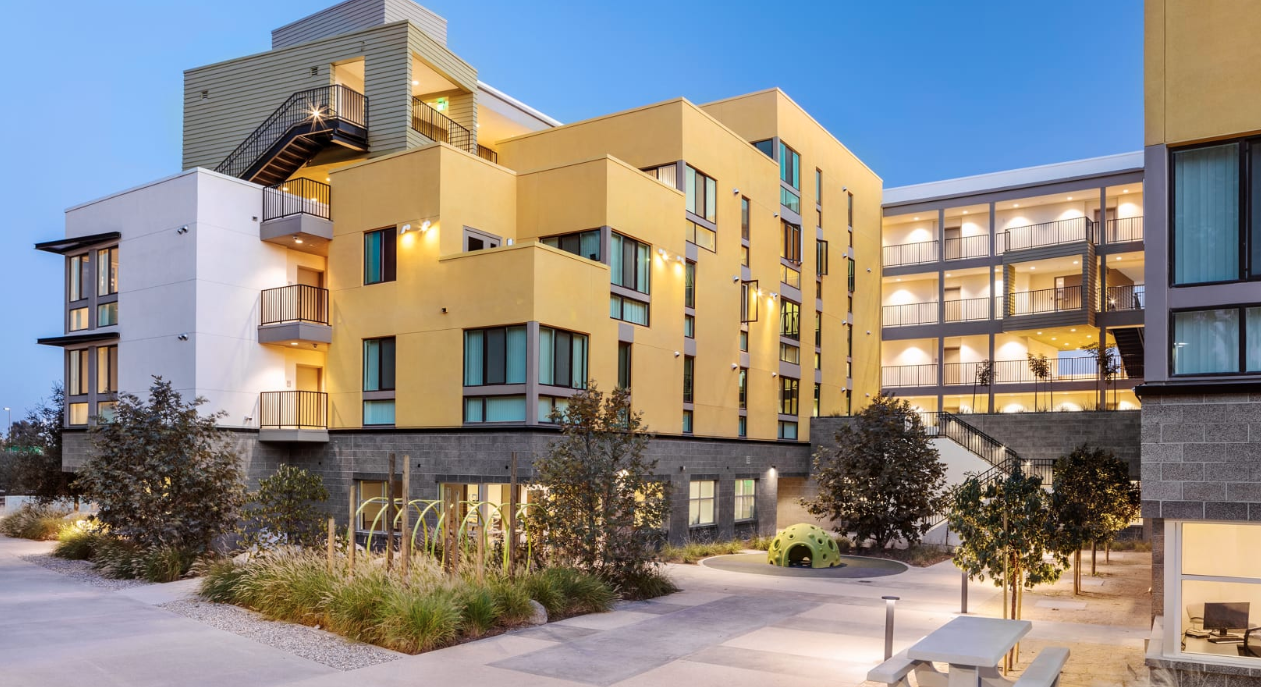 Photo: Panic Studio LA, courtesy AIA
Photo: Panic Studio LA, courtesy AIA
Community-Informed Design Award
8869 Avis, Detroit | Detroit Collaborative Design Center
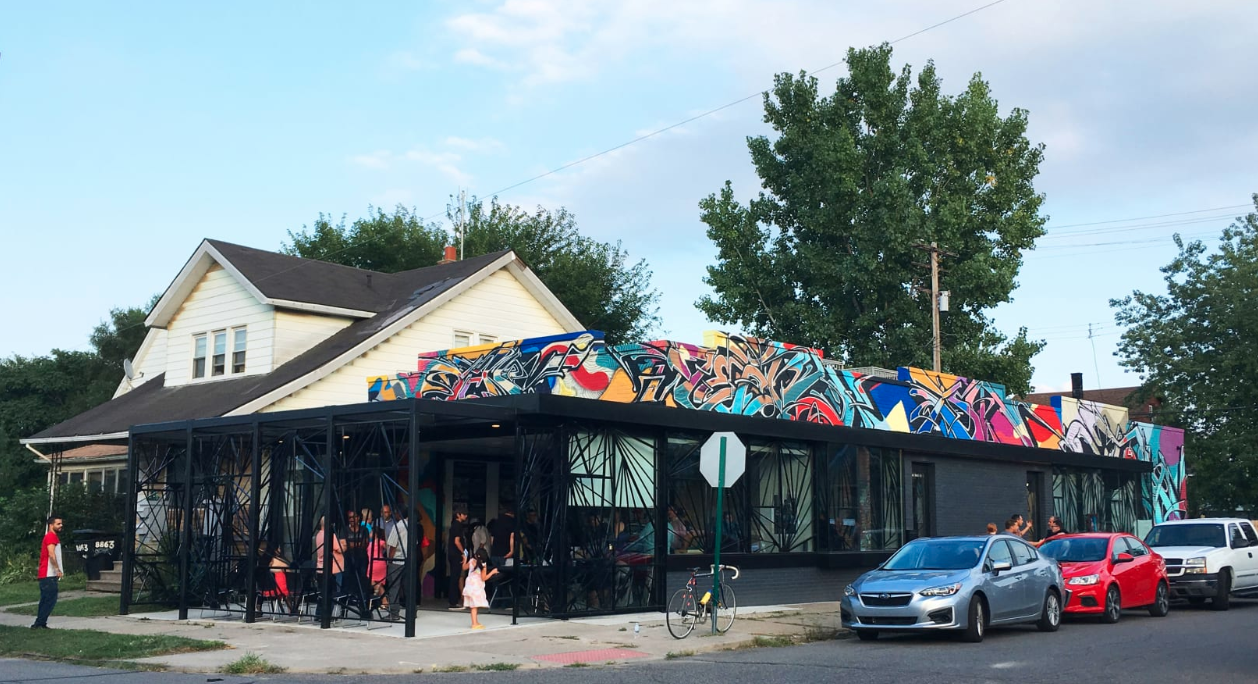 Photo: Ceara O'Leary, courtesy AIA
Photo: Ceara O'Leary, courtesy AIA
An anchor for The Alley Project, an initiative that promotes youth and community development through cultural and place-based initiatives in Detroit, 8869 Avis has transformed a neighborhood alley and surrounding lots into a graffiti gallery that deepens connections between neighbors and community assets. This renovation of an existing 2,400-square-foot building into a community center and the headquarters for Inside Southwest Detroit reflects the vision of the community it serves through its planning, execution, and everyday use.
The project was fostered through a robust relationship between Inside Southwest Detroit, the design team, and a diverse group of stakeholders. From the outset, the process engaged neighbors of all ages, including kids, grandparents, graffiti artists, and skateboarders, resulting in a community space that responds to resident needs and local culture. A series of community workshops and celebrations boosted the stakeholders’ agency and provided a number of venues for them to guide the overall design.
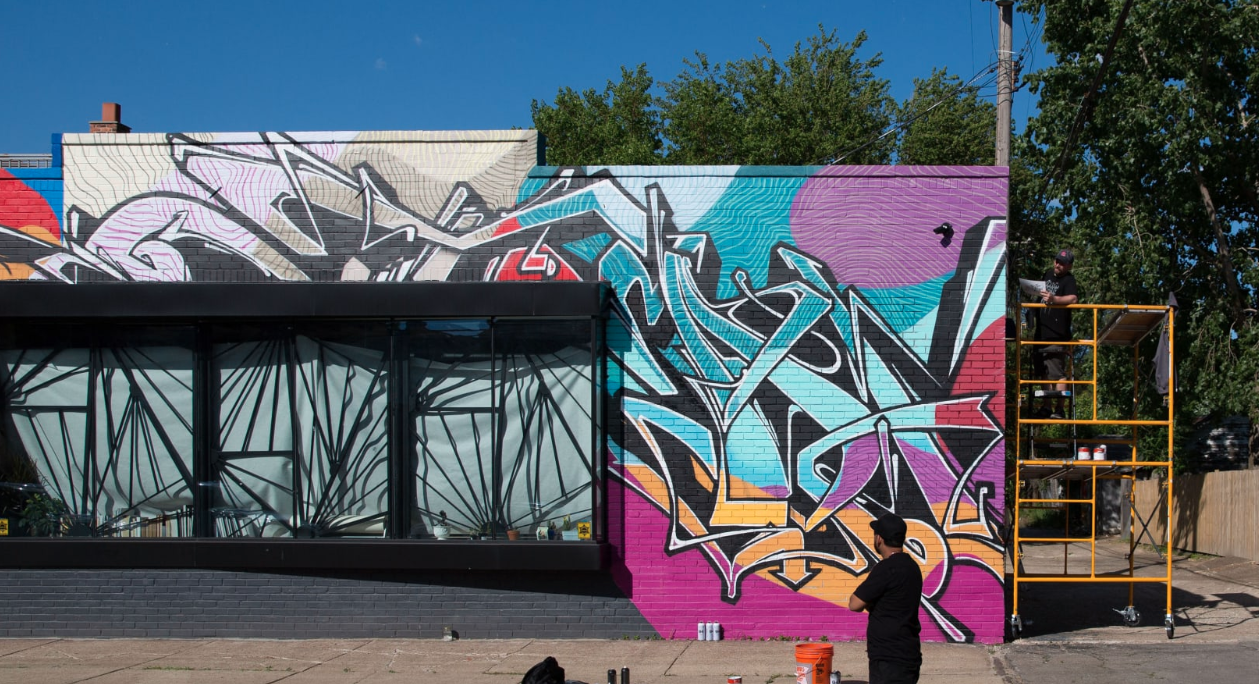 Photo: Erik Paul Howard, courtesy AIA
Photo: Erik Paul Howard, courtesy AIA
8869 Avis delivers a flexible and authentic space highlighted by an enclosed “front porch” area adorned with ornamental geometric ironwork screens. The screens, fabricated by local metalworkers, echo fences found throughout the surrounding neighborhood and contribute equally to transparency and security. The building is wrapped with a mural designed by a late street artist and completed by an Inside Southwest Detroit program alumnus as a tribute.
Inside, wood-finish panels in bold colors and subtle patterns reference the exterior art and metalwork. Large metal doors lend flexibility to the space and pull double duty as functional writing surfaces for meeting notes or spur-of-the-moment artwork.
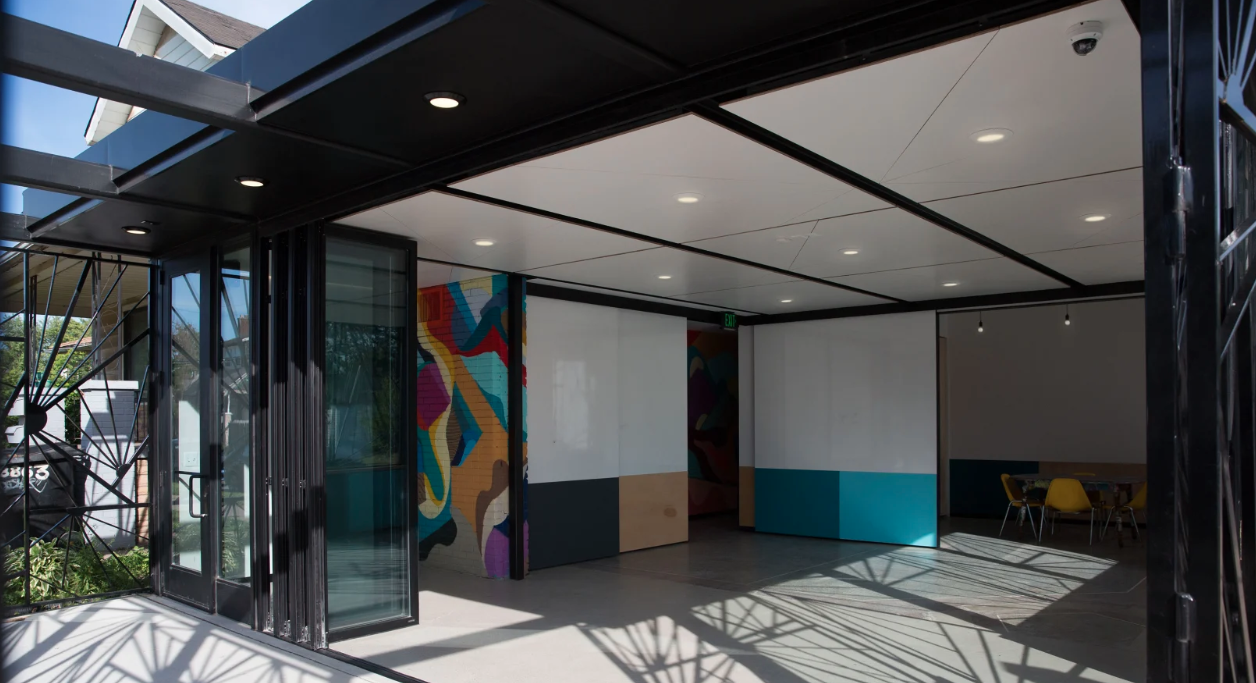 Photo: Erik Paul Howard, courtesy AIA
Photo: Erik Paul Howard, courtesy AIA
Excellence in Housing Accessibility - Alan J. Rothman Award
IFF Access Housing, Chicago | Landon Bone Baker Architects
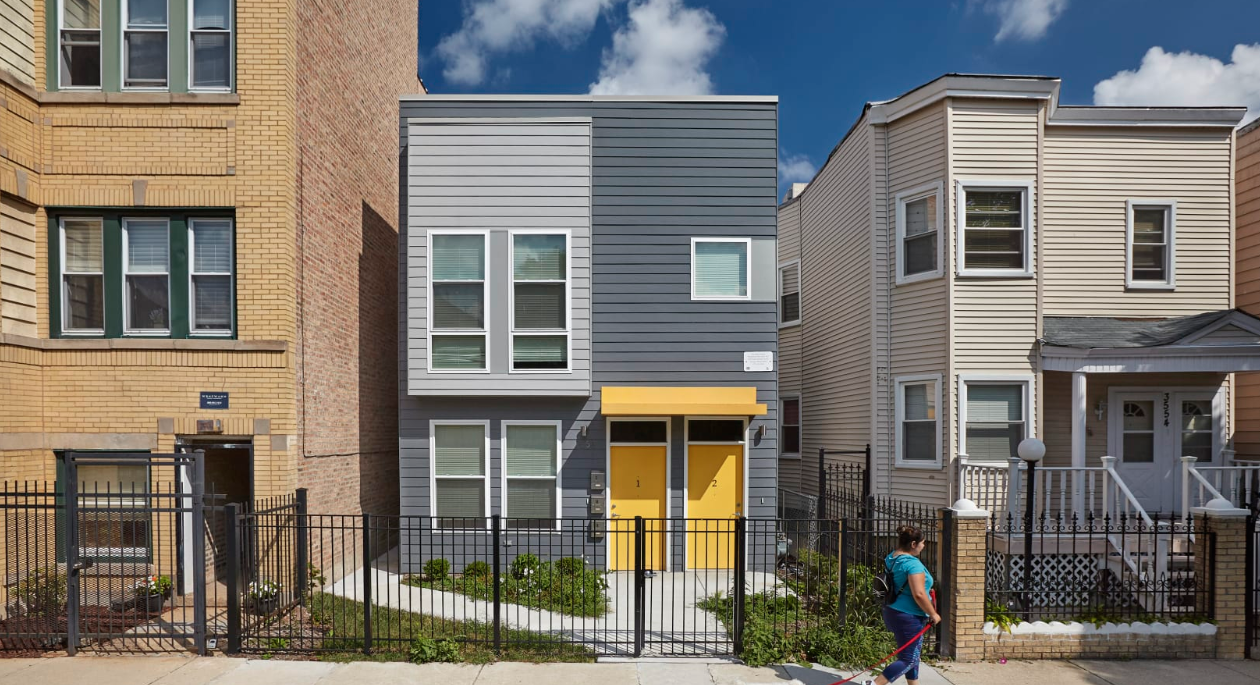 Photo: 2017 dimitre.com, courtesy AIA
Photo: 2017 dimitre.com, courtesy AIA
Capitalizing on vacant homes and infill lots scattered across a 2.5-mile footprint, IFF Access Housing delivers 25 affordable rental homes for people with disabilities while also helping to stabilize Chicago’s Humboldt Park and Logan Square communities. The project is set apart by its human focus and scale, which allow residents to thrive in charming homes that blend into the community rather than concentrating them on a single site.
In these two gentrifying neighborhoods, many of the rentals offered at the same price point were neglected and considered teardowns, though their lots were ideal for infill housing. Renovating the poorly maintained buildings presented the team with significant challenges, but rehabilitation was the most sustainable choice, reinforced by zoning restrictions and a need to preserve the existing urban fabric.
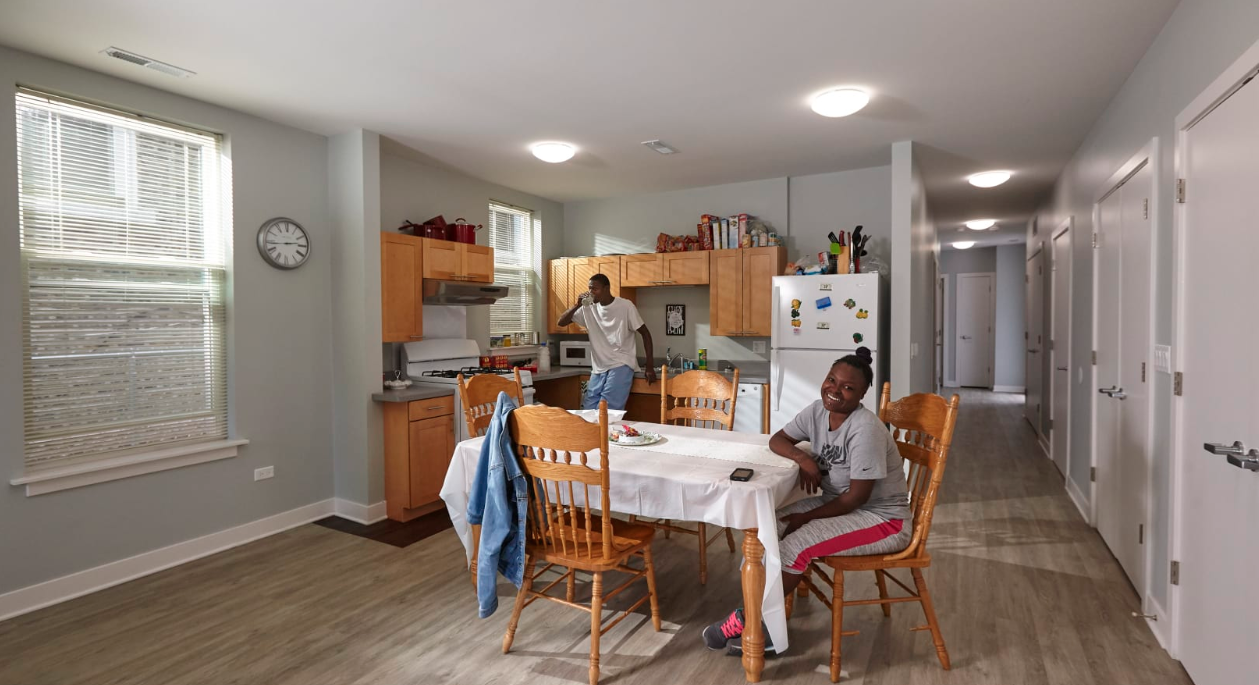 Photo: 2017 dimitre.com, courtesy AIA
Photo: 2017 dimitre.com, courtesy AIA
Since disabilities can take many forms, each home is filled with universal and accessible features. Ground-floor units feature no-step thresholds and low peepholes, while wheelchair-friendly kitchens and thoughtfully designed bathrooms round out the amenities. Each unit includes design features that serve all potential residents, such as soothing color palettes for those with sensory issues and visual doorbells for the deaf.
For the new construction, the project capitalized on the existing context, which comprises a wide array of shapes, sizes, roof forms, and materials. Elements of the new homes directly relate to the surrounding buildings, but their modest forms belie the moniker of affordable housing and delight with their proportions, outdoors spaces, and colors.
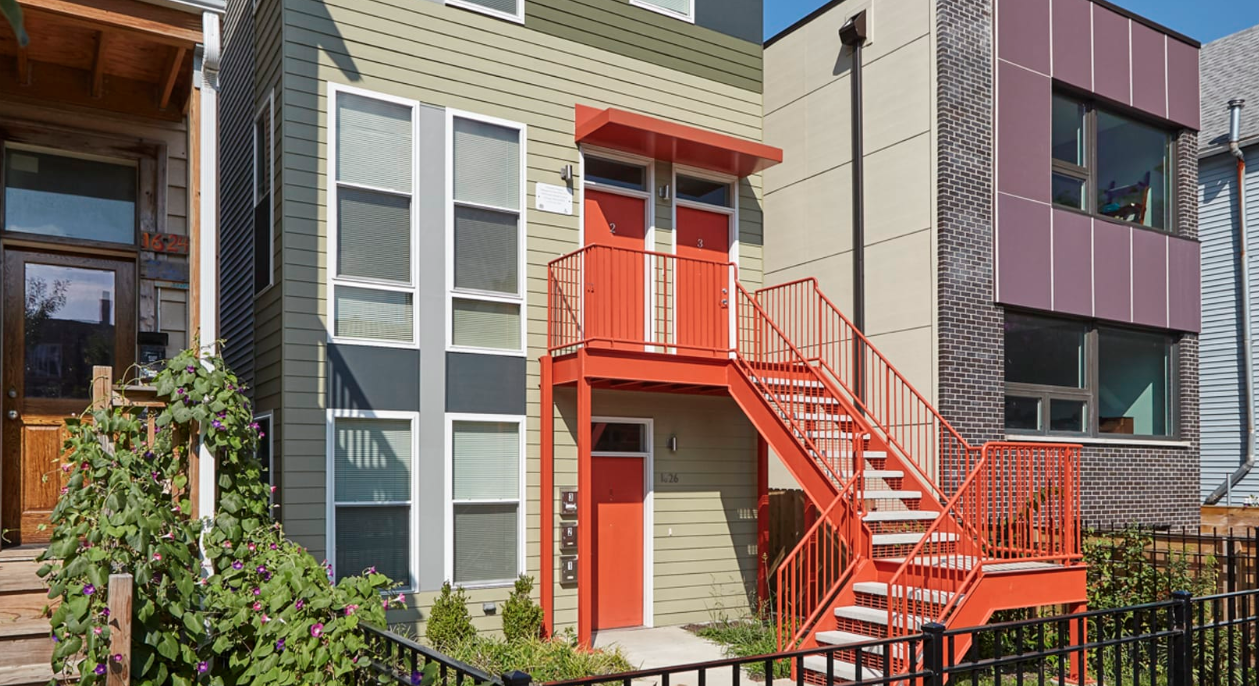 Photo: 2017 dimitre.com, courtesy AIA
Photo: 2017 dimitre.com, courtesy AIA
MORE ABOUT THE 2019 AIA/HUD HOUSING AWARDS
Related Stories
Multifamily Housing | Jul 14, 2016
Portland, Ore., City Council approves construction excise tax for affordable housing
Expected to raise $8 million annually on commercial and residential projects.
Multifamily Housing | Jul 7, 2016
Courtyards make Brooklyn’s Bushwick II residential development its own miniature city
Bushwick II will feature light-filled plaza spaces, a roof for urban living, and more than 800 apartment units.
Market Data | Jul 7, 2016
Airbnb alleged to worsen housing crunch in New York City
Allegedly removing thousands of housing units from market, driving up rents.
Market Data | Jul 6, 2016
A thriving economy and influx of businesses spur construction in downtown Seattle
Development investment is twice what it was five years ago.
Multifamily Housing | Jul 5, 2016
Apartments continue to shrink, rents continue to rise
Latest survey by RENTCafé tracks size changes in 95 metros.
High-rise Construction | Jun 29, 2016
Best Tall Buildings around the world favor unusual shapes and hybrid functions
The Council on Tall Buildings and Urban Habitat selects winners in four regions.
Multifamily Housing | Jun 22, 2016
Can multifamily construction keep up with projected demand?
The Joint Center for Housing Studies’ latest disection of America’s housing market finds moderate- and low-priced rentals in short supply.
Urban Planning | Jun 15, 2016
Swedish ‘Timber Town’ proposal from C.F. Møller provides a unique blend of nature and city
The development acts as a transition area between a traditional urban landscape and parklands.
Multifamily Housing | Jun 14, 2016
San Francisco voters approve tougher affordability requirement on new housing development
Critics charge that the measure may backfire and actually reduce new affordable units.
Building Team Awards | Jun 1, 2016
Multifamily tower and office building revitalize Philadelphia cathedral
The Philadelphia Episcopal Cathedral capitalizes on hot property to help fund much needed upgrades and programs.


